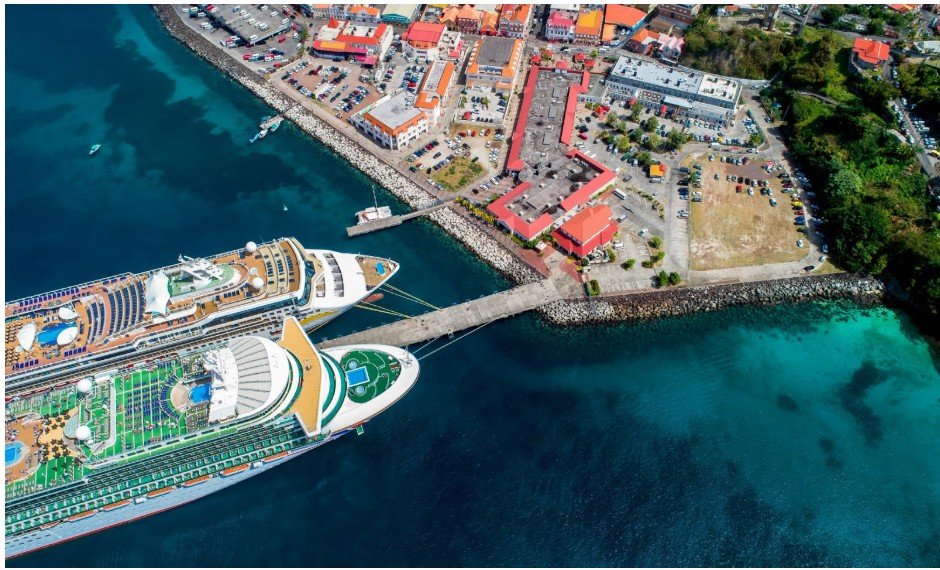What Are the Top Financial Benefits of Moving to the Caribbean
The Caribbean offers more than just stunning beaches and crystal-clear waters; it’s also a destination for savvy financial planning.
Many professionals, investors, and retirees find that moving to islands like St. Kitts & Nevis, The Bahamas, or Grenada offers significant financial advantages.
These benefits range from tax-friendly policies to strong investment opportunities and affordable real estate. If you’re exploring the idea of a Caribbean move, understanding these financial perks can help you decide if it’s the right choice for your long-term goals.
4 Important Financial Advantages of Moving to the Caribbean
Moving to a Caribbean island may sound like a dream, but it’s also a smart financial move for many individuals and families. Here are four key financial advantages that you can enjoy when relocating to the Caribbean:
Favorable Tax Systems
Many Caribbean countries offer attractive tax policies, some even having zero personal income tax. These systems appeal to entrepreneurs, investors, and remote workers seeking legal ways to manage their taxes globally. Let’s look at a few key examples:
- St. Kitts & Nevis: This nation has no personal income tax, inheritance tax, or capital gains tax for most residents.
- The Bahamas: There is no personal income, capital gains, or inheritance tax here. This means residents, including American expats, can keep their local earnings.
- Cayman Islands: This is a tax-neutral country. It does not have personal income, capital gains, payroll, or withholding taxes for anyone.
These islands make money from trade tariffs and fees instead of direct taxes, creating financial incentives for individuals and businesses.
Why are entrepreneurs and investors interested?
These tax systems help businesses and investments grow faster. With lower taxes, more money is available for reinvestment or business expansion. For example, a business owner can legally structure their company to avoid local corporate taxes, depending on their residency rules.
Digital nomads also find these systems beneficial. Their income from remote work might not be taxed locally, and the costs of staying compliant are often low.
Important Note for U.S. Citizens
U.S. citizens and green card holders must still report their worldwide income to the IRS, even if living in a tax-free Caribbean country. However, as long as you meet specific requirements, you might be able to lower your U.S. tax bill using tools like the Foreign Earned Income Exclusion (FEIE).
Since tax rules differ from island to island, creating a personalized financial strategy is smart. Consulting with a cross-border tax advisor is a good way to ensure you can enjoy these benefits while following U.S. and local laws.
Banking, Asset Protection, and Stable Currency
Many Caribbean countries are known for their strong and confidential banking systems, which follow international financial rules. Places like the Cayman Islands, the Bahamas, and St. Kitts & Nevis have well-developed offshore banking. Offshore banking offers privacy, good regulation, and stability, which appeals to wealthy individuals and international investors.
A key benefit is multi-currency banking. You can often open accounts in US dollars, Euros, and local currencies. This gives you flexibility in how you keep and move your money.
In some Caribbean nations, local currencies are tied to the US dollar. For example, the Eastern Caribbean dollar has been fixed at EC$2.70 for US$1.00 since 1976. This connection reduces significant changes in exchange rates. It also gives you a predictable value when you convert between dollars and local money.
Caribbean laws support legal structures like foundations and an international asset protection trust to protect wealth. These tools help protect wealth from political or economic changes in your home country by putting your assets under a foreign legal system with strong protection against creditors. In the Cayman Islands, for instance, courts will not enforce foreign judgments unless someone can prove fraud or abuse.
Offshore banking is now more transparent due to global rules like FATCA and the Common Reporting Standard. So, these structures work best when they fully follow the reporting laws in your home country. But when set up correctly, they can help you spread your investments, protect against instability at home, and keep your financial information private under strict legal safeguards.
Real Estate Investment and Property Value
In the Caribbean, real estate is more than just a home; it’s an investment and a way to gain residency or citizenship. Countries like Dominica, Antigua and Barbuda, and Grenada offer “Citizenship by Investment” (CBI) programs.
These programs grant legal status to those who buy approved property. For example, investing at least $200,000 USD in government-approved real estate in Dominica can qualify you for citizenship, provided you hold the property for at least three years before selling.
Because tourism drives many Caribbean economies, property values often grow steadily. Foreign investors can find strong demand for rentals from expatriates, vacationers, and long-term tourists. In popular areas, luxury villas, boutique resorts, and eco-retreats often provide annual rental income of 2% to 5% when professionally managed.
To protect your investment, many regions allow foreign investors full ownership of land and have legal safeguards to protect property rights for non-residents. For instance, in Antigua and Barbuda, foreign investors can own 100% of a property without limits on foreign control.
In short, Caribbean real estate offers two main benefits. It helps secure immigration status while also generating income and increasing capital. With legal protections and steady tourism, it becomes a key part of a diverse, globally focused investment plan.

Copyright: Unsplash I License: CC0 Domain
Citizenship and Long-Term Financial Security
Caribbean Citizenship by Investment (CBI) programs provide more than just a second passport. They offer financial security and greater freedom to travel. For example, the CBI program in St. Kitts & Nevis, established in 1984, grants citizenship with visa-free access to around 154 destinations.
Grenada’s CBI program is unique because it allows citizens to apply for a U.S. E-2 Treaty Investor Visa. This means Grenadian citizens can legally invest in and run businesses in the United States.
Caribbean citizenship can also help protect wealth. Assets held under favorable foreign systems are often safer from political, economic, or legal risks in one’s home country. CBI status can also benefit estate planning, allowing wealth and privileges to pass to future generations without being tied to unstable residency requirements.
For retirees and international investors, Caribbean citizenship opens doors to global markets, banking opportunities, and easier travel. It also provides flexibility to diversify assets, relocate, and adapt to shifting economic or tax conditions worldwide.
Financial Freedom in Paradise
Moving to the Caribbean offers more than just beautiful beaches; it is also a smart financial move for long-term independence. Many Caribbean nations have no personal income tax, stable banking systems, and strong real estate and citizenship programs. This provides significant financial flexibility. Investors, business owners, and retirees can diversify their assets, pay less tax, and build wealth for their families in well-regulated economies.
While each island has its own rules, they all offer opportunities for a great lifestyle and financial freedom. For anyone looking for global mobility and long-term security, the Caribbean is a wise and beneficial choice.





